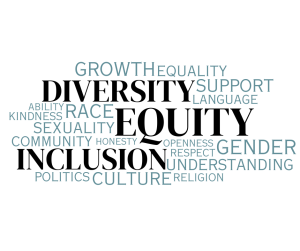Editorial: Public Records Belong To The Public, Not The Government
February 20, 2019
Public servants of the United States’ government often seem to forget or sometimes disobey the American right regarding public records – that U.S. citizens have the right to obtain any public record anywhere they want, anytime they want.
Concerned citizens and journalists who wish to gather information on court cases are often left facing a barrier: the Public Access to Court Electronic Records system, more commonly referred to as “PACER.”
PACER is a 30-year-old scheme that continues to exist, acting as a collection of online portals run by the administrative arm of the federal court system, according to The New York Times.
The system was designed to provide online access to more than one billion court documents that exist in federal courts spanning across the country.
However, the public can only gain access to these public documents online by paying significant fees. PACER charges 10 cents per page to view electronic court documents or up to $3 for documents exceeding 30 pages, which is common. These prices can add up to rather large costs, especially for news outlets.
These fees are disobeying the basic right for public information, giving the federal government a profit on a law that is based on the Freedom of Information Act.
In addition to pricing these pages, a new study by The Associated Press has claimed that the federal government has censored or withheld information more often last year than it has in the past decade.
Of the 823,222 requests for public information from the federal government, 78 percent of the records were censored or withheld.
But the government’s business is the people’s business and it should not be redacted or layered with fees.
With these restrictions, American citizens are being denied their right to obtain government files fairly and can become inconvenienced in their education and their professions.
Across the country, higher-education institutions use government documents and public records in their lessons. If students are forced to pay for additional charges for these assignments, then it becomes another expense to an already costly experience.
Even with classes at Central Connecticut, there are often times where those majoring in criminology, journalism and others are asked to use court documents as part of an assignment. Some professions require the use of these files as well.
In many cases, journalists have used government documents to expose crimes and stories for the public. Stories such as the Watergate scandal and the Boston Globe’s investigation on sexual abuse of minors by the Catholic Church have been uncovered because of FOIA.
In The New York Times, they say that “news is what someone doesn’t want you to know — the rest is advertising.”
These findings contain important information that is normally found within government documents. The truth should not come with a price tag; it is free for all to know.
Lawyers and other employees of the criminal justice system also rely on court documents to help in processing and future cases. This information tends to be critical and can sway the outcome of a case. To force people in these fields to pay for vital government information is unjust and illegal.
Public records are meant for the people. FOIA was created to expand upon the opportunities for people to expand their knowledge on their communities and nations, not to limit it by adding charges to view government workings.





